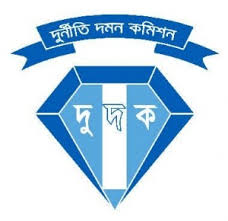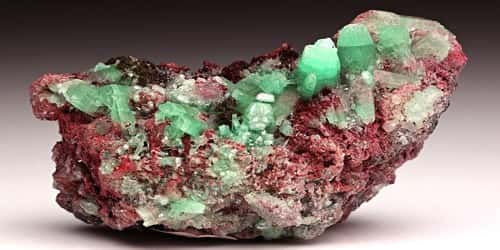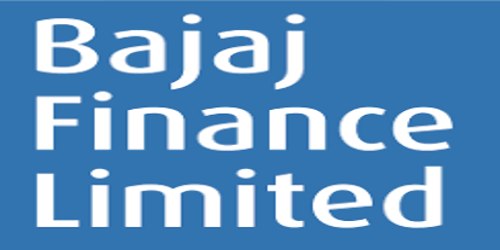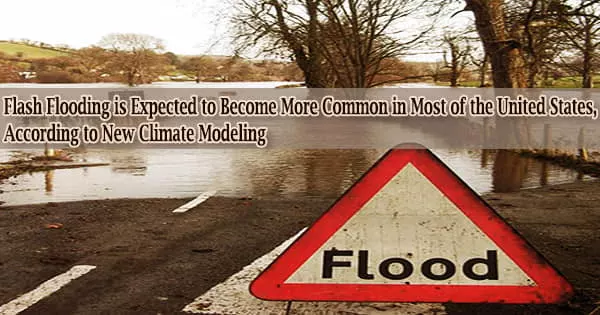Chapter No-1
1.Introduction: Corruption is the misuse of public office for private gain for the benefit of the holder of the office or some third party. Corruption is a complex social, politicalandeconomic phenomenon. Public sector corruption throughout the world and is widespread in many places1.
The problem of corruption is global in nature and exists in all countries of the world in varying degrees. Both literature consulted and respondents to the mission team confirmed that corruption has been, and continues to be, one of the major problems Bangladesh faces today. The situation was more acute to the period preceding January 11 2007 when the Caretaker government took over power. Corruption in Bangladesh is characterized by a strong patronage system that has permeated the political, social, and economic fabric of society.
Corruption is an age-old problem, but only recently has it started attracting the global attention of policy makers and development practitioners. A growing volume of empirical analysis, discussed in greater detail below, demonstrates that corruption hinders growth and investment, aggravates poverty and inequality, and thus hurts the overall wellbeing of people. Since there is no universally accepted indicator that measures corrupt practices, it is less clear how adequately empirical models can capture corruption.
While there is no agreement in the literature on how to define the phenomenon of corruption, one thing is clear: corruption is a governance problem. Corruption is a result of weak state management and exists when individuals or organizations have monopoly power over a good or service, discretion over making decisions, limited or no accountability, and low levels of income (Klitgaard, 1998)3. The frequently cited World Bank definition of corruption, is the abuse of public office for private gain4. This does not necessarily mean that corruption exists only in the public sector. Rather that corruption in the public sector is more important for the purposes of public policy in developing economies and the public sector should take the lead in establishing high standards of integrity and accountability.
Corruption increases the transaction cost of business that negatively impacts international competitiveness of the state. Corruption also reduces the sense of security for foreign and domestic investors, as it often leads to extortion, protection rackets, delays in implementation, and rise in the infrastructure costs. The impediments to economic growth are considered a threat to national security. Corruption in political and bureaucratic system poses a risk to economic development. Establishing rule of law and a structure for good governance capable of curbing corruption are, therefore, necessary.
A nation, where black money nurtures corruption through politics and bureaucracy, subverts democratic values to undemocratic governance. Klitgaard (1997: 492) commented, “when government agencies suffer from systematic corruption and inefficiency, most citizens lose, even though corrupt politicians, business and officials may gain.” Kofi Annan, the former Secretary General of the United Nations, stated (Cited in GTZ 2004: 6): Corruption hurts poor people in developing countries disproportionately. It affects their daily life in many different ways, and tends to make them even poorer, by denying them their rightful share of economic resources or life-saving aid. Corruption puts basic public services beyond the reach of those who cannot afford to pay bribes. By diverting scarce resources intended for development, corruption also makes it harder to meet fundamental needs such as those for food, health and education. It creates discrimination between the different groups in society, feeds inequality and 3 injustice,
discourages foreign investment and aid, and hinders growth. It is, therefore, a major obstacle to political stability, and to successful social and economic development.
Corruption is creating barrier to access to education, health, and justice among others. Thus corruption is creating a threat to economic security, food security, health security, environment security, personal security and political security.
1.aAnti-corruption Commissionand its act,2004 :Whereas it is expedient and necessary to establish an independent Anti-corruption Commission to prevent corruption and other corrupt practices in the country and to conduct inquiry and investigation for other specific offences and to enact other relevant matters.
1.bMission of the Anti-Corruption Comission of Bangladesh:
To relentlessly combate,control,suppress and prevent corruption guided by the mission ACC sets for itself the following tasks and function:
-It control corruption by identifying hot spots and areas of vulnerabilities for targeted investigativeand prosecution action,prevention and curative treatment beside preventive education and advocacy.
It ultimately suppresses corruption through the effective and cumulative effects of its combating,controlling and prevention efforts enumerated above.
1.c Definition of Corruption: I want to discuss about the definition of corruption.
According to Transparency International-Corruption is operationallydefined as the misuse of
entrusted power for private gain.
According toWorld bank-Corruption sabotages policies and programs that aim to reduce poverty,so attacking corruption is critical to poverty reduction.
According to- ICAC of Australia-The community trusts public officials to perform their duties with honesty and in the best interest of the public. Corruption involves breaching public trust.
Corruption is not identifiable as a single, separate, independent entity, which can be isolated and destroyed. Corruption is a complex set of process involving human behavior and many other variables, some of which are difficult to recognize or measure. (Almas, 2000:5) Even through corruption manifests itself as a force on its own and often generates its own momentum, it is linked to many other factors, and it is by understanding these factors that we can hope to understand corruption. The term “corruption” is used as a shorthand reference for a large range of illicit or illegal activities. Although there is no universal or comprehensive definition as to what constitutes corrupt behavior, the most prominent definitions share a common emphasis upon the abuse of public power or position for personal advantage (ADB, 1998).
Corruption is in its simplest term, the abuse of power, most often for personal gain or for the benefit of a group to which one owes allegiance. It can be motivated by greed, by the desire to retain or increase one’s power, or perversely enough, by the belief in a supposed reater good. United nation’s Dictionary of social science define as ” corruption in public life is the use of public power for private profit, preferment of prestige or for the benefitof group or class, in a way that constitutes a breach of law of standards of high moral conduct” (1978:43-). Corruption is a complex issue, grounded in a country’s social and cultural history, its political and economic development, and its bureaucratic traditions and policies. To generalize, corruption tends to flourish, when institutions are weak and economic policies distort market place (World Bank: 1997).
1.dConcepts of Corruption:Ingeneral,corruption refers to perversion or destruction of integrity in the discharge of once duties by any unfair means.In other words,corruption means deviation from established rules and practices-legal,moral,social or customary.However,the corrupt practices may be categorized into two:
-a decision to depart from government established criteria for decisions of the relevant class;
-amonetary reward benefiting either the official directly or those related to him.
Within these categories, major examples of corruption are bribery,misappropriation of public resources, kickbacks and commissions, nepotism, favoritism, gift giving, cheating, fraud, dishonesty,embezzlement, intellectual corruption.
Chapter-2
2.Reasons behind Corruption:There are so many reasons behind corruption. Some of the courses of corruption are mentioned below:
2a.Poverty:Around 50 percent of the people ofBangladesh live under poverty line. They are unable to manage their basic needs. Honesty, morality, virtue etc are meaningless to them. They need two meals a day fro them and their family. So they do not hesitate to adopt unfair means or offer bribe to fulfill their needs.
2b.Unemployment:This is a vicious problem forBangladesh. There are around 140 million people inBangladesh and most of them are unemployed. It is also not possible for the government of a poor country likeBangladesh to create employment for all its peoples. The demand for jobs is much greater than its availability. So people try to get a job by offering bribe.
2.cLack in rules of Law:There are hundreds of laws inBangladesh but the proper application of law is rare. Also there are lots of ambiguous laws that need to be amended. Besides the law enforcing agencies in Bangladesh is also corrupted. All these create an environment for corruption and corruption gradually have its roof deep in the society.
2.dPoor remuneration:The government servants are paid very poor salaries which is barely enough to maintain their families. Although the price of essentials is going up every day their salaries are not increased in proportion to the market price. Besides, there are no arrangement for incentives for efficiency or performance. Failing to maintain there families some of them indulge in unfair means. Of course there are a segment of the government who are by nature corrupted.
2.eLack of patriotism:patriotism is a divine virtue of human being. It is normal that every citizen would love his/her motherland. A true patriot loves his country and cannot indulge in activities like corruption. But in our country the number of patriotic people are decreasing day by day and the number of corrupted people are increasing due to lack of patriotism.
2.f Lack of moral values:any people engage in corrupt acts due to lack of good moral values. If individuals uphold good moral values, they will be aware of the consequences of their actions and refrain from indulging in such acts. Corruption can be prevented from within if an individual imbibes strong moral values of integrity, honesty, leadership, accountability, transparency, fairness, equity and trust.
Chapter No-3
3.Effects of Corruption/forms of corruption:
Corruption is all-pervasive in Bangladesh. Though corruption has been a part of our politico-administrative heritage, there is little denying the fact that after independence the tentacles of corruption have engulfed the entire society. So strong and sustained is theinfluence of corruption that most people have come to accept it as a fait accompli. Not only do citizens have accepted it as a part of their daily life experience but also more frighteningly they feel themselves powerless to address the phenomenon at any level (Lewis, 1996). The reason for such helplessness is to the presence of corruption in almost all levels of government (World Bank, 1996). The changeover from an authoritarian to a democratic system of government in the 1990s has not had any effect on the nature and dimensions of corruption. Information obtained from the Finance Division of the Ministry of Finance show that over a period of twenty-two years, i.e. between 1971 and 1993, taka 18,000 crore were lost in the public sector due to misappropriation of public funds and theft (Alam, 1996). But this huge amount of money, which is substantial for a resource-poor and aid-dependent country, is only the tip of the iceberg if one takes into consideration all cases of corruption that have been reported by the Bureau of Anti-Corruption over the same period (Khan, 1997).A government Task Force Report identified a few years back a number of areas where corruption was likely to manifest itself. These areas include: procurement of goods and services including award of contracts by the government; administration of taxes and prevention of smuggling, disposal, sale and allotment of government property including disinvestments of industries and other commercial units; administration of loans by public financial institutions, outright embezzlement of government fund and all kinds of shop-floor malpractices (Ahmed, 1992). It is usually known that almost all kinds of corruption perpetuate in politics and administration in Bangladesh. The most common form of corruption is pecuniary bribes (Taslim, 1994). Other forms of corruption are: abuse of authority, nepotism, favoritism, fraud, patronage, theft and deceit. In many cases forms of corruptions are intertwined with their consequences. As one scholar noted: “Petty corruption takes many forms. Payments are required simply to obtain an application form or a signature, to secure a copy of an approved sanction, to ensure proper services and billing from telephone, natural gas, electric power and water employees. Project corruption permeates both public and private sector contracting. substantial commission must be paid to secure large public sector contracts in Bangladesh.Programmatic corruption involves Food For Work and relief programmes” (Kochanek, 1993:259,263).
The consequences of these three forms of corruption included among others: high losses suffered by public-sector utilities; forcing donor countries and agencies to hire lobbyists to clear their projects by bribing officials at different levels and failure of Food For Work and relief programmes to reach their targets due to massive theft and huge misuse of resources (Kochanek, 1993). Other baneful consequences of corruption on the economy include: siphoning away a large chunk of public resources which could have been productively employed somewhere in the economy; undermining of productivity, efficiency and effectiveness of
the government; diminishes efficient mobilization of resources and management of development activities; gains through corruption used either in conspicuous consumption or transferred to foreign bank accounts; generates allocative inefficiency by permitting
the least efficient contractor or most costly supplier with the highest ability to bribe; bribes and payoffs instead of expediting decisions and facilitating movement of files encourages civil servants to hold back all papers until some payment is made to them;money gained from bribes becomes a part of the expected income; and over-invoicing and under-invoicing of imports and exports and smuggling increases lead to distortion in investment decisions and to capital flight (Ahmed, 1992). Some other equally damaging consequences of corruption are: undermines public confidence in government; engenders wrong economic choices and constrains government’s ability to implement policies; makes the poor pay the price; and threatens government’s strategy of private-sectororiented growth (World Bank 1996a: 66).
A recent report of the United Nations Development Programme (UNDP) titled Corruption and Good Governance” found that bureaucratic corruption and inefficiencyare taking a heavy toll on the Bangladesh economy, causing hundreds of millions of dollars’ worth of loss in terms of unrealized investment and income (Mustafa, 1997). The report pointed out: “If Bangladesh were to improve the integrity and efficiency of its bureaucracy, its investment would rise by more than five percentage points and its yearly GDP rate would rise by over half a percentage point” (Mustafa, 1997). On the basis of the index of the International Country Risk Guide (ICRG) Bangladesh’s average score is over 1.76 during 1991-97 and ranked the sixth most corrupted nations of the 123 countries of the world under study. According to survey conducted by of organizations such as Transparency International (TI INDEX), politica Risk Service (ICRG Index), and the World Economic Forum (GCR Index), Bangladesh rank among the most corrupted nations in the world (Hossain – 2002).
The corruption rooted deep in the country that drained down the government wealth estimated at TK 11,534,98 core or US$ 2.1 billion during the first half of 2000(January – June), The report was made on the basis of the news scan Database which include 9 national and 6 regional and dailies published during the study period. The report analyzed 1345 reports which were scanned during the period of which 655 were related to financial loss, Including 211 in different sectors of the government involving TK 111,534,98 cror (observer, 5th November, 2000) the X- prime Minister Sheikh Hasina was frank enough when she related here better experience of fighting against corruption and irregularities which plague the administration and society as a whole. In her valedictory address in parliament the prime minister said that in the long absence of democracy the cancer of corruption was spreading into every sphere of national life and it was very different to red of it (Independent, 11th July). According to a recent study conducted by the transparency international Bangladesh mentioned the most corrupted country in the world (August- 2002).According to Corruption Perception Index (CPI) Report 2002, Bangladesh is the mostcorrupted country out of 102 countries in the world. According to this report top Ranking countries are shown by the following table No: 10
Note: 2002 CPI score relates to perceptions of the degree of corruption as seen by business people and risk analysists, and ranges between 10(highly clean) and 0 (highly corrupt) We can see that according to TIB report police is the most corrupted sector of Bangladesh. It is also very painful for us that education is the 3rd corrupted sector of Bangladesh.Corruption is a majored international problem that demands attention it is also the number one obstacle on the way to national development ofBangladesh. Corruption has breakout as an epidemic in every socio economic field Bangladesh. The grip of corruption has reached even at the grass-root level. However, the major effects of corruption is discussed bellow:
3.aCorruption lowers Investment:Corruption increases the cost of investment and lowers the returns of investment. Investment is essential for the socio- economic development of the country. The Reduced level of investment retards economic growth and thus hampers national development.
3.bCorruption deprives the poor from government service:The greatest impact of corruption is on the poor – those less able to absorbed its cost. Illegally diversion of the scarce resource corruption undercuts government ability to provide basic services, such as health, education, public transportation or local policing to its citizens. Petty corruption provides additional cost for citizens for delivery even the most basic government activities. Moreover it can jeopardize the health and safety of citizens through, for example poorly designed infrastructure projects and scarce or outdated medical supplies.
3.cCorruption destroy the morality:Wholesale corruption destroys the moral base of the people. The citizens forget about their duties and responsibilities their motherland. They only think about their personal gain and benefit, which damages the natural qualities of the people.
Chapter-4
4.Corruption in Bangladesh:Bangladesh is characterised as having generally weak rule oflaw, opaque institutions and persistent corruption in the public and private sectors.2 It has been argued that some of the key institutional pillars of democracy – such as the judiciary and legislature – are ineffective3 and fail to implement existing laws, including the Anti-Corruption Commission Act 2004 and the Right to Information Act 2009.
Bangladesh scores the same on Transparency International’s Corruption Perceptions Index 2010 as Sierra Leone, Togo, Ukraine and Zimbabwe in terms of the country’s perceived levels of Public sector corruption.4 Successive national household surveys conducted by Transparency International (TI) Bangladesh, have shown how these perceptions have played out in practice. According to the most recent study in 2010, more than 80 per cent of surveyed households have reported experiencing corruption when interacting with various public services and state institutions.5 Based on these findings TI Bangladesh has estimated that corruption is costing the country 1.4 per cent of its gross domestic product (GDP) each year, or the equivalent of 8.4 per cent of its annual national budget. A series of high level corruption scandals, including allegations against former prime ministers, have helped to awaken the public and political discourse to the urgency of the problem. Political leaders,at all levels and from across all parties, have committed publicly to fighting corruption and to establishing a corruption-free Bangladesh. The election platforms of the main political parties, including the present ruling grand alliance, have prioritised the issue.
This political will reflects a broad national consensus on the high cost of corruption and the need to combat its debilitating effects on society, politics and the economy. There is increased awareness how corruption negatively affects people’s lives, especially the poor and marginalised. Through its of research, TI Bangladesh has highlighted how corruption costs on average three per cent of families’ household incomes – a share which is greater (four per cent) for lower-income households. As in other countries, the poor in Bangladesh are more vulnerable to bribery, extortion and intimidation when they interact with state services. They tend to have a greater reliance on publicservices yet have fewer alternatives when these cannot be accessed.The chapter’s survey work reveals that poor Bangladeshis confront demands for bribes that limit or even block their access to essential services such as education, health and justice – all of which support the achievement of the MDGs. Even in cases where access to services is secured through illegal payments, they are often low quality and provide reduced benefits to users.
Reports on corruption, misuse of funds and all sorts of crimes fill the pages of our newspapers day often day.These reports flood in all over the country.Transparency International’s corruption perception Index 2001 to 2005 listed Bangladesh as the nation with the highest level of perceived corruption among the countries of the world included in the report.Corruption at all levels in bureaucracies is rampant.Bribery is among common practices in our government offices.Money makes here everything smoother and unchallenging.According to some surveys,people consider police department as most corrupt followed by customs,education and judiciary respectively.Getting a job through fair comoetition is a matter of good fortune rather it is easy through money and tadbir.Thousands of examples can be found throughout the country whereby people easily buy up the police to get his enemy arrested.Millions of takas from government resources are being misappropriated each year.Nobody care this and unfortunately it is our political leader,worker or supporter who is behind these misdeeds.
2Business Anti-Corruption Portal, ‘Bangladesh Country Profile’, Website, Accessed on 5 August 2011. See: www.businessanti- corruption.com/en/country-profiles/south-asia/bangladesh/snapshot/. 3Transparency International, ‘National Integrity Systems: Transparency International Country Study Report’ (Berlin, Germany: TI, 2003). www.transparency.org/content/download/1628/8305/file/bangladesh.pdf; Global Integrity, ‘Global Integrity Report: Bangladesh – 2010’, Website, Accessed on 5 September 2011.
www.globalintegrity.org/report/Bangladesh/2010.
4 See: www.transparency.org/policy_research/surveys_indices/cpi/2010.
5 TI Bangladesh, ‘Corruption in the Services Sectors: National Household Survey 2010’ (Dhaka, Bangladesh: TI-B,December 2010). See: www.ti-bangladesh.org/research/Executive%20Summary_23122010%20FINAL.pdf. For more
4.aThe development costs of corruption:InBangladesh,th developmental cost of corruption is mos obvious and deadly.The broader developmental areas and concern that are being badly affected by corruption.
4.b Corruption and poverty alleviation:Corruption and poverty are two parallel problem of our national life.Inspite of repeated efforts to alleviate poverty,situation is going from bad to wrose day by day.Among numerous causes of such failure of poverty alleviation programs,misappropriation of funds in most crucial and basic one.So,most of funds for poverty alleviation are being misappropriated and poor people are being deprived.Even projects undertaken by NGO’s also are not free from corruption.
4.c Corruption and loss of national resources:Due to corruption ,a lot of national resources are being exhausted.A report claimed that corruption cost the country TK.17191 crore in the year 2000.
4.d Politcal corruption in Bangladesh:
Since the independence of Bangladesh in 1971, the political leaders have used their position or power to grant undue favors or benefits to their friends, relatives and supporters. In the post independence period, the country saw a growth of “…a class of nouveaux riches….who receive[d] government patronage (Maniruzzaman 1975: 895).” The political activists were also awarded with licenses to distribute locally produced and imported goods. However, most of these permit holders were ‘fake’ importers and they simply sold permits at higher prices to traders and merchants. Money thus earned was safely deposited in foreign banks (Maniruzzaman 1975).
From 1975 to 1990, the country experienced institutionalization of corruption. The patronage system continued during that period with almost 40% of resources allocated to development wasted due to corrupt practices (Kochanek 1993). The practice continued later under subsequent regimes. Khan (1999) commented ‘…corruption prevailed in each and every section of national life and the forms of corruption included petty corruption, project corruption and programmatic corruption.’ The decade of 1980 was also ‘credited’ with the institutionalization of ‘electoral corruption’ (Zafarullah et al. 2001). The entire electoral system became a farce and money was widely circulated for vote buying, vote rigging or taking control of vote centres. During the same period we saw the emergence of a politics-business nexus that added further corruption to the already heavily corrupt environment.
The beginning of the democratic era, since 1991, showed no indication of reduction in corruption. The extent of corruption actually grew and the allegation of illegal acquisition of wealth by high public officials became quite rampant. Since 11 January 2007 a number of stories captured public’s attention and showed how political positions were utilized in making money from shady businesses, through opaque procurement decisions, and by making partisan appointments to public posts. The presence of corruption became so evident that nothing seemed immune from it. In a number of cases the donors openly criticized the former democratic governments for their involvement in corrupt practices. A notable example was the allegation made by the Danish government accusing a cabinet minister of corruption. When no action wastaken against the accused minister, the Danish government decided to withdraw a significant amount of aid money.
Another significant feature of the corrupt practices of the politicians during the democratic period was that the political elites were not only engaged in misappropriating money but they were sending the plundered money abroad. This reflected their lack of intention in associating their future with that of the country that they were looting.
Through recruitment of ‘party bureaucrats’ irrespective of their qualifications, the democratic governments took control of the bureaucracy. The ongoing process of politicization of bureaucracy effectively utilized its participation in corruption by the successive governments (Jahan 2006). During the last elected democratic government, it crossed all limit as the
government initiated a new process of politicization. With the consent of Prime Minister’s Office (PMO), an unofficial cell was created to ensure that no civil servant who is or was sympathetic to the previous regime was promoted (Khan 2003). The Superior Selection Board (SSB) became dysfunctional due to the decisions made by the PMO; the SSB’s only duty was to approve the list supplied by the PMO (CGS 2006). This process of politicization had a significant impact in curbing the ‘thinking capacity’ and independence of the bureaucracy (Jahan 2006). Through partisan influence, a new ‘accountability mechanism’ was introduced: the civil servants’ performance was measured for their ‘political loyalty’. This further accelerated the process of administrative corruption. The civil servants’ ‘partnership’ or nexus with the politicians provided a win-win situation for both the parties where the patrons (politicians) succeeded in satisfyingtheir clients (party loyalists or supporters) and the civil servants gained from their own patron-client relationship.
Furthermore, recruitment within the civil service became a major source of corruption. The immediate past government actually facilitated the process as it served their partisan interest. A study conducted by IGS pointed out how the Public Service Commission (PSC) BD, a constitutional body, was used by the political leaders in making recruitment within civil service a private business. Recruitment for certain cadres was decided by money and those who were recruited 7 considered it an investment which they were supposed to recover once in the civil service (IGS 2007).
The politicians and the administrators of Bangladesh actually worked hand in hand in order to continue the corrupt practices (Haque et al 2003; Jahan 2006). Corruption nexus between the politicians and administrators was not random: the political leaders used their power and positionto control the recruitment procedure and also to encourage civil servants to be engaged in corrupt practices. Thus, people who entered the civil service in exchange of money found it ‘necessary’ to make profit through abuse of the existing service delivery systems. Further, it was complemented by the bureaucrats whose propensity to corruption laid the foundation for a politician-bureaucrat partnership. When these two factors were combined the cost for the poor toget the services, which they were supposed to receive free or almost free of charge, increased. It also hindered access by the poor to basic necessities which the state is constitutionally bound to provide. The poor found that no place existed to submit their grievances as the public institutions, supposed to receive them and take necessary actions on receiving their complaints, were not immune from corruption either.
4.e How corruption impacts livelihood:Corruption poses a threat to human security as this tends to hinder access of the poor to resources and, at the same time denies them to access to justice. Studies conducted by Transparency International Bangladesh (TIB) provide examples of impact of administrative corruption on incomes of poor households. These studies reflect on people’s suffering, deprivation of basic necessities (health and education) and access to justice. As part of poverty eradication strategy, the Bangladesh government has started compulsory free primary education. It also started providing stipends to poor primary school students to reduce their dropout rates. TIB (2002) found that poor people are the direct beneficiary of these programmes. But TIB (2005) revealed that 40% students paid for the admission, and 32% for enrolling in the stipend list. Five percent of those enrolled for the stipends reported that they were not receiving full amount of the stipend. To achieve the Millennium Development Goals, the government also initiated stipend programme for the secondary school female students. But TIB uncovered that this initiative was infected with corruption as well. Twenty two percent had to pay illegal tax for enrolling in the stipend programme and 38% of them reported to receive less money than the amount of stipend stated. TIB (2002) also disclosed that the average monthly income of victims of corruption was less than the income of household not victimized by corruption. The health sector is widely affected by corruption in Bangladesh. The poorest segments of the society use public hospital services as they do not have incomes to seek services of private doctors and hospitals (TIB 2002). TIB study (2002) found that the average monthly income of the corruption victims in public hospital was less than those who were not the victims of corruption. TIB (2005) uncovered that 26% patients paid illegal tax for treatment in the outdoor and 20% in indoor, 37% for surgery, 57% for X-ray and 60% for pathology test in public hospital. Therefore, the poor were paying illegal tax to get essential health services which are supposed to be delivered free of cost.Economic condition of service recipient from public hospital (Monthly income in US$) Household who received services from public hspital Household the victims of corruption in public hospital Household not the victims of corruption in public hospital (TIB 2002) 9 Finally, TIB (2005) showed that 92% of the households had to pay bribes for recording First Information (FIR) and 91% for General Diary (GD) in the police stations. Sixty six percent of plaintiffs and 65% of the accused had to pay bribes in the lower courts. In both cases, people with lower incomes had to suffer due to corruption (Figure 1.3). Figure 1.3 Economic condition of service recipient from police and lower judiciary (Monthly income in US$) 84 86 73 82 80 91 Household who received services Household the victims of corruption Household not the victimsof corruption Police Lower Judiciary The three studies lead to a number of findings. First, in most cases, people with lower income suffered most due to corruption. Second, the poor were forced to pay to get services which are to be delivered to them free of cost. Third, the additional spending to get services may hinder the poor’s access to these services. Finally, corruption deprives the poor of their rights: the poor had to pay to gain access to public institutions of justice.
4.f Padma Bridge and corruption
It is a sad state of affairs when an entire nation has to suffer for the actions of just a few. The World Bank has claimed to have found credible evidence of a high-level corruption conspiracy among selected government officials involved in the Padma Bridge project.
The cancellation of the $1.2 billion credit for the Padma Bridge project will have an adverse effect on the Bangladesh economy for years to come. It will also make it difficult for the current government to begin what it thought would be one of its signature achievements.
The government will look for alternative sources of funding for the Padma Bridge. Malayasia has shown some interest. However, the World Bank decision will surely affect the terms and conditions that any prospective donor would offer for funding the project. And it definitely would not go in our favour.
Allegations of corruption in various projects are nothing new in Bangladesh. It has happened in the past and will continue to happen in the future. What is new this time is the pretension in certain quarters that nothing has happened.
4.g Corruption destroying Railway
Crime and corruption always go hand in hand. Bangladesh, like many of the developing countries, has her share of such vices that never seem to go away. But her people have always expected better and thus with uninhibited enthusiasm participated in all the elections since 1970, a year before the country emerged as a new state in the world.
So, the latest news of corruption about former Railways minister Mr. SuranjitSen Gupta should not come as a surprise to most Bangladeshis.
Sengupta, who denies all corruption charges, said he was resigning to preserve democracy and uphold transparency.
“I am stepping down even though I was not involved in the incident. A lot of people think if I stay at the helm of the ministry, the investigation could be influenced,” The BBC quoted him, as saying.
“I took the decision for the sake of fair investigation, and to… uphold democracy,” Sengupta added.
According to reports by Bangladeshi newspapers, Sengupta resigned after failing to convince the Prime Minister that he knew nothing about the money.
The three officials had allegedly stored the cash in the minibus and they told local newspapers that they were going to Sengupta’s house with the money.
Meanwhile, Sengupta, who was appointed to his position four months ago, expressed the hope that ‘truth’ would be revealed throughout the investigation. (ANI)
Chapter-5
5.Transperency:Transparency is one of the most effective preventive mechanisms. It promotes accountability, facilitates oversight and citizen participation and brings legitimacy to governmental decisions.
5.a National strategy:A national strategy needs to be taken to prevent corruption. A national strategy is an umbrella approach, which will identify systemic weaknesses across all the institutions that make up the social and economic structure of the country. The strategy will include thorough plans to reduce or eliminate these weaknesses through structural changes, legislation, procedures, and enforcement of preventive measures.
5.b Recommendation:To remove the corruption from our society,following measures must be considered:
-To create amoral ground against corruption, government,non-government and civilian organizations have to launch anti-corruption campaigns.
-Head of the government should enunciate clearly to all ministers,parliamentmembers,local leaders that no compromise will be made in case of corruption.
-All local and national newspapers should be committed to inform the people about the magnitude and costs of corruption of the central and local leaders,government officials and others.
-The police and Anti-Corruption Bureau should be reorganized.
-An independent anti-corruption commission should be given enough power to file and proceedcorrupton cases.
-Special attention should be given to train special units in case formulation,legal and judicial issues to avoid any criminal prosecution.
5.c Conclusion:Corruption is a disease that has become so widespread in our society that it pervades all areas of public life. It not only threatens our economic security, it also poses a threat to our national security.Corruption must be seen a destructive to economic progress and development. We must identify the corrupt persons as corrupt not as party workers. Because,they are the enemy of nation.
REFERENCES:
1.World Bank ,Corruption in Bangladesh: Cost and curses(2000).
2.HossainAbul,Corruption and Development Role of civil Society. Institute ofBangladesh Studies Alumni Association.RajshahiUniversity(2000). P. 65
3.Anti-corruption policy ,Strategy and policy office. Asian Development Bank(ADB) Manila, Philippines(1998).
4.Report. Public Administration Reform Commission ,Combating corruption “
Public Administration for 21st Century. Volume-1(2000)
5. Islam Rakibul, S.M ” Durnity 0 Bangladesh: Prasongikvobna” Traim as kikPatrika
May- July 2001.
6. Mollah Md. AwalHossain&Uddin,Md.Nizam; Combating corruption in Bangladesh: some strategies; Dept. of Public Administration,
University of Rajshahi. , Bangladesh
7. World Bank, 1st July ,”government that works(1996) ” The University Press Ltd,Dhska, Bangladesh Institute of The Bank. Edited by Rick StapenhurstsahrJ.kpundes
8. Alam ,BangladeshArthosamagikabakhiRodhyDurnityDomonBureace; s vumika(1995). DurnityDomon Bureau, Dhaka.
9.Husein, s. ,Corruption in public offices: Some conceptual Issues in the Context of Bangladesh. Kotbari, comilla Bangladesh Academy for Rural Development (BARD(1988)
10. Mandal M.S ” Development and Corruption: Responsibilities of Civil Society” (2000) ,Institute of Bangladesh studies Alumni Association. Rajshahi University
11. Khan. MM, political and administration corruption: Concepts, Comparative Experiences and Bangladesh Case ” T. I. – Bangladesh chapter – www. ti- bang.org.
12.Zakiuddin Almas, ” Corruption in Bangladesh An Analytical and sociological study 2000” Paper for Transparency International Bangladesh. Chapter, http: // www. ti- Bangladesh, org/ does/research/corBong1hfm.
13.ChowdhuryA. R. ,thedailystar.net, Padma Bridge and corruption,Tuesday, July 3, 2012
Website:
1.www.transparency.org&www.ti-bangladesh.org
2.www.Bdtips.com
3. Yahoo! News, Bangladesh Railways Minister resigns over corruption scandal,
By ANI | ANI – Tue, Apr 17, 2012
















